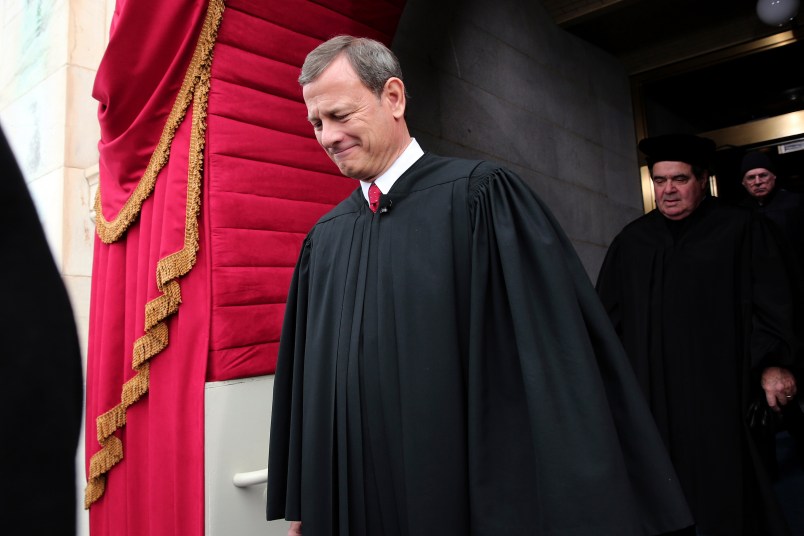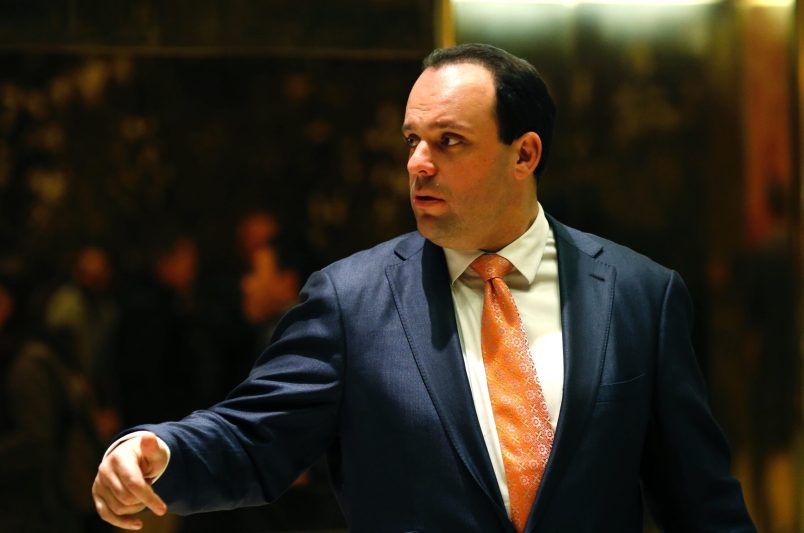I read through this a number of times before deciding to publish it. But I strongly, strongly recommend it to you. The author of the email is a former federal prosecutor. When I first read it I confess I found it all a bit loopy or improbable. But as I thought about it and read it again I eventually found it quite compelling. Whether this is actually the House strategy I don’t know. But I think the author is correct about the dynamics involved.
I should add that I don’t think this relies on any great civic virtue on Justice Roberts’ part. As I read it, if he wants to shut the whole thing down he’s entirely capable of doing that through the conventional appellate process ending up at the Supreme Court. This just means ruling on these decisions quickly and in the spotlight.
A majority of the Senate can also overrule his rulings. But that means owning overruling a Chief Justice strongly identified as a conservative and a Republican.
I’m a former federal corruption AUSA and also a former DOJ attorney. Let me tell you why I think the House isn’t going to court over the failure of Bolton, Pompeo, etc. to appear for testimony.
If the House were to go to the District Court, any ruling would eventually be appealed to the Supreme Court. The earliest any decision would come is next spring or early summer.
If the House impeaches the president, the impeachment will be conducted no later than January, and occur under the Senate’s impeachment rules.
The rules provide that the House managers can issue subpoenas to anyone, presumably including Bolton and Mulvaney. A senator could object that the testimony is irrelevant or covered by privilege. Rule VII provides that a ruling on such questions will usually be made by the Presiding Officer – the Chief Justice, unless he refers the decision to the full Senate. The Chief Justice would likely decide, in the first instance, claims of executive privilege or attorney-client privilege. He would also likely decide questions such as the crime/fraud exception and the co-conspirator exception to the hearsay rule, as well as questions of waiver of any privilege. Finally, he would rule on subpoenas for the production of documents.
I think it is likely that testimony from Mulvaney would be compelled – at least as far as his public statements, and that Bolton and others would be ordered to testify – at least as to some matters. Additional documentary evidence would likely be compelled, as well.
While a majority of the Senate could vote to overturn the Chief Justice’s ruling, any evidentiary/privilege ruling by him would have a presumption that it was correct. As a political matter, it would be difficult for many Republican senators to vote to overturn an evidentiary ruling by the Chief that is based on the law. (That is different than a motion to dismiss because the evidence is insufficient, where it is the senators’ role to evaluate the weight of the evidence.) Only a handful of Republican senators would have to vote to uphold the Chief Justice’s ruling for a majority to sustain the ruling that testimony or documents should be compelled.
Chief Justice Roberts will make straight rulings on the evidence and the power of the Senate to compel testimony. That’s the best outcome the House can want. (If he didn’t agree with the House Managers on any point during the trial, the Chief would be unlikely to provide a fifth vote in the Court before the trial to compel the same evidence.)
Thus, by moving directly to impeachment, the House gets its best chance of winning the testimony of Bolton, Mulvaney, and others, and doing so in a timely fashion. The House likely won’t be able to depose witnesses or examine all the documents in advance, but that’s a small price to pay for obtaining the evidence at the trial.
In addition, a favorable decision can’t be hung up in the courts. The decision of the Senate on procedural rulings, whether by the Presiding Officer or if reviewed, by the full Senate, is final, and not subject to court review. See Nixon v. United States (involving the impeachment of Judge Nixon, not Richard Nixon).
My guess is Speaker Pelosi is aware of this approach, based on her comments today at her presser that the House won’t go to court now to obtain testimony of Pompeo, Maloney, and Bolton. She noted, however, that the information may be available to the Senate.
I’ll say again. I’m agnostic on whether this really represents Pelosi’s or Schiff’s thinking. But I think it’s very on point about the actual dynamics of a Senate trial. It doesn’t assume or rely on Roberts’ being some secret member of the resistance. The decisions will be his in the final analysis in any case, either as the deciding vote on the Supreme Court or as the presiding judge at trial. So fast-forwarding directly to him really loses nothing. The difference is that in the latter case it comes with no delays. And everyone is watching.







